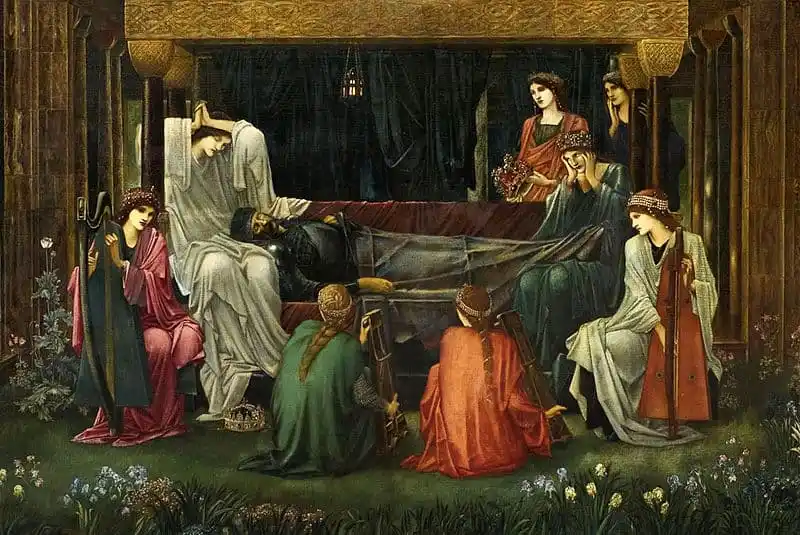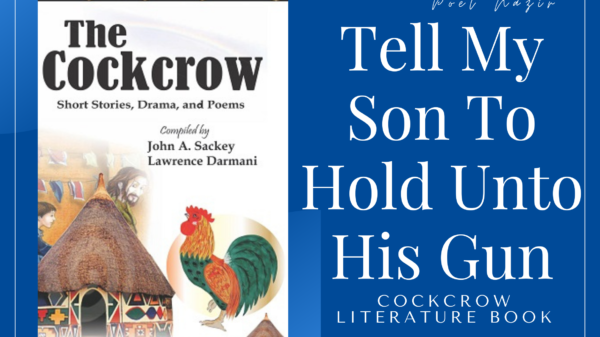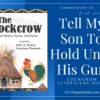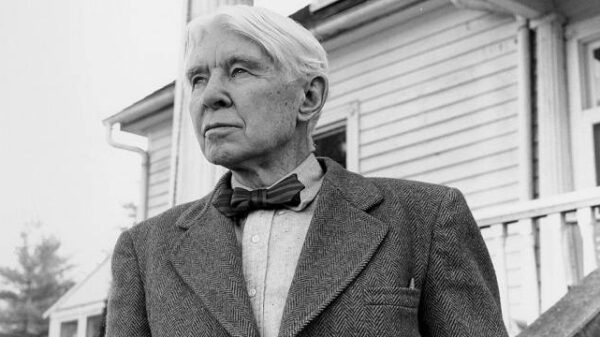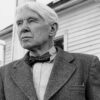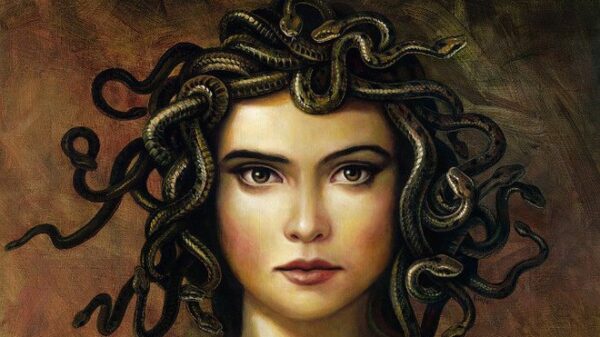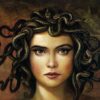Morte d’Arthur describes the demise of the great British king, Arthur, and Bedivere’s depositing of Arthur’s sword, Excalibur, in the lake from which Arthur first acquired it. Bedivere tends to the dying king, who hands his knight the sword and tells him to go and throw it in the lake.
Bedivere goes to the lake but finds he cannot bear to throw away such a mighty sword, so he hides it and returns to his king. Arthur can tell Bedivere has disobeyed him, so off Bedivere goes again, but once again he cannot bring himself to fling Excalibur into the water. When he returns to Arthur again, the king can tell that Bedivere has disobeyed him and commands him to go back.
Bedivere succeeds on the third attempt, and once he has thrown the sword into the lake, a hand, clothed in white samite, rises from the water and grabs the sword, brandishing it three times before disappearing with it under the water. When Bedivere returns to the dying king, Arthur can tell from Bedivere’s shock that the knight has thrown the sword back, and Arthur prepares to die.
A barge arrives to carry him off to his final resting-place, and Arthur is placed on board, where he is tended by three queens. The barge sails off to the isle of Avilion (Avalon).
Read Also: Mariana a Poem By Alfred, Lord Tennyson
As Christopher Ricks observes in his superlative critical and biographical study of the poet, Tennyson, Morte d’Arthur endeavours ‘to imagine and depict a person left alone after Arthur’s death as Tennyson was after his Arthur’s.’
How successfully Tennyson conveys Bedivere’s loneliness and mourning for Arthur – and, by extension, how well Tennyson expresses his own sense of loss – critics have doubted ever since the mid-nineteenth century, when Leigh Hunt wrote that he sensed Tennyson thought ‘Morte d’Arthur’ one of his best poems, an assessment which Hunt himself could not share.
Read Also: The Lotos-eaters a Poem By Alfred, Lord Tennyson
Morte d’Arthur is written in the blank verse (unrhymed iambic pentameter) Tennyson also used for a number of his dramatic monologues written at this time, such as ‘Ulysses’.
Although it isn’t a dramatic monologue, ‘Morte d’Arthur’ is an attempt to stage a dialogue between Arthur and Bedivere, as well as describe Bedivere’s actions. There is also something decidedly fairy-tale-like about its use of the pattern of three: Bedivere needs three attempts at getting rid of the sword, the Lady of the Lake brandishes Excalibur three times when she receives it back from Bedivere, and there are three queens aboard the barge which departs for Avalon with Arthur’s corpse.
Tennyson is trying to summon the magic and myth of the Arthurian story, but it is revealing that he chose to focus on the death of Arthur at the beginning of his own poetic career. Did he do this because of the death of his Arthur, Hallam?
Tennyson appears to have felt, at this time in the mid-1830s immediately following Hallam’s death, that life had lost its meaning and purpose and that, to coin a phrase, the world, and Tennyson, would ‘never see his like again’.
Here it’s worth noting that Arthur’s first words to Bedivere in the poem express his certainty and his doubt: his certainty that the age of the Round Table, a golden age, has passed, and his doubt that he will ever live again.
Read Also: I Am The People, the Mob a Poem By Carl Sandburg
We might fast-forward to 1850 and the poem which Tennyson published then, although he actually began it around the same time as ‘Morte d’Arthur’: In Memoriam. In that poem, Tennyson finally convinces himself (or so the poem says; Tennyson himself privately had doubts) that Arthur Hallam will live again in heaven, and Tennyson will be reunited with him there.
But Arthur’s doubts that he will live again may well match Tennyson’s over whether Arthur Hallam will ever do so. In the last analysis, ‘Morte d’Arthur’ is a poem about the passing of not only a great man, but a great period in history. An important phase in Tennyson’s personal history had also come to an end.
Cc: Deserved
Poet Nazir is a writer and an editor here on ThePoetsHub. Outside this space, he works as a poet, screenwriter, author, relationship adviser and a reader. He is also the founder & lead director of PNSP Studios, a film production firm.

